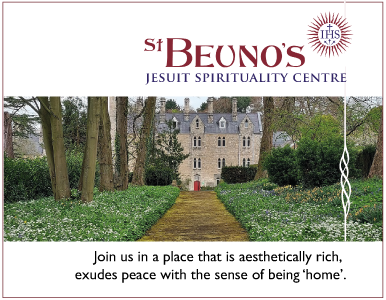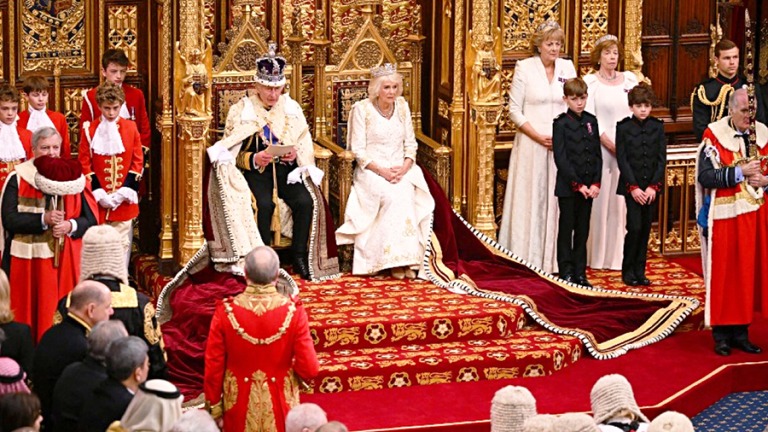Sorry, no records were found. Please adjust your search criteria and try again.
Sorry, unable to load the Maps API.
In yesterday’s King’s Speech, it wasn’t at all surprising that the cost-of-living crisis ranked high on the government’s agenda. With inflation currently running at 6.7 per cent (against a Bank of England target of 2 per cent) and a crippling public sector debt, getting price rises halted is one of the key targets that will need to be hit if people are going to be able to make ends meet.
Sadly, the general reaction to King Charles III’s first speech was muted, if not derogatory. What used to be something of an eagerly awaited spectacle now looks badly out of step in a world that has changed beyond recognition over the past few years. Of course, everyone knows that whilst the king can in theory veto or challenge the content of the Speech, such things have long since been relegated to a ritual affirmation of whatever the government of the day wants to say about what it might – or might not – be intending to do.
For King Charles III – who has such passionate and relevant views about a whole range of socio-political issues – reciting yesterday’s soft-edged and largely insubstantial statement must have been a particularly sour moment. The text certainly confirmed my increasing worry that this is a government comprised of people who actually think that the world is unfolding exactly as it should, rather than collapsing onto chaos.
This applies particularly to the realm of social justice and the common good. For we Catholics this is embedded with a ‘preferential option for the poor’ in which we seek to judge the status of a society by how it treats its poorest and most vulnerable. If recent pronouncements by the present government are anything to go by, a converse theology seems to be operating – noticeable for instance in the remarks of the Home Secretary this week that living in a tent on a street in of our inner cities is ‘a lifestyle choice’, or Tory MP Lee Anderson who last month played down what he described as “this poverty nonsense”.
At a fringe event at the Conservative Party conference in Manchester last month, Mr Anderson said: “I don’t believe all this nonsense about, you know, you know my stance on the food poverty stuff… This poverty nonsense. Go in a time machine back into when I was growing up in the Seventies, that was real poverty… It’s nonsense now, it’s absolute nonsense.”
Remarks such as this may seem outrageous to us, but they are indicative of a political culture with a particularly dark and brutal take on the concept of both poverty and meritocracy. What makes such things particularly unpalatable and disturbing is not just that some legislators are thinking in this kind of immoral space, but they seem perfectly relaxed about flagging up publicly personal attitudes that just a few decades ago would have been anathema.
To make matters worse, it appears that the general public have been worn down and marginalised to the extent that we’re no longer surprised or angered by such statements. It seems we have fallen a long way from the heady days of late last century when the Churches were regularly banging heads with the government, and issues of domestic social justice brought thousands onto the streets.
On 27th October the Catholic Bishops of England & Wales Department for Social Justice issued their latest Cost-of-Living Statement, ahead of the government’s autumn budget statement. In it there’s a list of action points that the Church hopes the government will prioritise in the months and years ahead in an effort to redress what has now become decades of relentless pressure on the poor. Some of this may have been a consequence of external circumstances such as Covid and the Ukraine war, but mostly it’s the result of a combination of government policies that have favoured the wealthy, and a general dismantling of legislation to protect the vulnerable.
According to the Trussell Trust, foodbanks have given out a record 1.5 million emergency parcels over the past six months, many of them to first time users, which the Trust has described as “alarming”.
“Our message to the government is they need to step up and do something about this. Last year was our busiest year ever,” said the Trust’s Director or Policy, Research and Impact Helen Barnard.
“This year is even worse so far, and we’re bracing for the worst winter we’ve ever seen. The government needs to step in,” said Helen.
Elsewhere the Joseph Rowntree Foundation has just published research showing that destitution levels are up nearly two-and-a-half times since 2017, including nearly triple the number of children. The foundation says that 3.8 million people experienced destitution last year, including one million children. Most of these families are on benefits, which have been ground down systematically for years now.
By contrast, the Department for Work and Pensions said this week: “There are 1.7 million fewer people in absolute poverty than in 2010, but we know some families are struggling, which is why we are providing a record support package worth £3,300 per household.
“This includes the latest cost-of-living payments paid directly to over eight million households this year, our decision to raise benefits by over 10% earlier this year and our £2 billion Household Support Fund which is helping people to buy essentials.
“We also know that households are at least £6,000 a year better off in full-time work than out of work on benefits, and to help people out of poverty through work we are also increasing the National Living Wage again and investing £3.5 billion to help thousands into jobs, grow the economy and bear down on inflation.”
Comparing these two positions, you can see how neither party is really addressing the position of the other, and in some respects both sides of the poverty debate need to create a framework of more constructive dialogue. I’m sure charities and the Churches are very open to that – as the Bishops’ Conference statement shows – the problem is that governments of every shade have always seemed to adopt a fortress mentality when it comes to debating matters of social justice. This is a very odd irony as the basis of any government’s mandate is that it functions primarily to serve the general public, and in particularly the most vulnerable.
Historically this reluctance probably derives from a fear of engaging with the imagined spectres of state socialism, or at least any enquiry that has the aroma of shifting the balance of power from the state to the populace. And it’s not just Tory governments that have been twitchy about this – on the rare occasions when it has found itself in power the Labour party hasn’t exactly excelled in tackling social marginalisation issues either, and even the Christian Churches have traditionally veered well clear of anything that could be seen as adopting a political position. That said there have also been some spectacular examples of Church leaders – and Catholic Church leaders in particular – intervening in urgent political issues to considerably good effect.
Such events have not been without their detractors, and the whole theology of the relationship between the Catholic Church and politics is complex, at times divisive and always inconclusive. At best it might be argued that generally the Church itself does not work to promote social justice, but rather teaches Catholics to understand its social teachings and apply them to their own lives. However, when social exclusion causes people to be deprived of their basic rights, the Church as an entity cannot remain silent.
Where one draws the line between decrying deprivation and active social campaigning is largely a matter of personal judgement that even popes can struggle with. However in a speech (or rather a typically improvised address) to Italy’s Christian Life Community and the Student Missionary League in May 2015, Pope Francis was reticent – Catholics really ought not to get embroiled in party politics, but sometimes this is hard he said when there’s so much corruption around.
He called on Catholics to get involved even if to do so might be difficult, frustrating and fraught with failure.
“Do I as a Catholic watch from my balcony? No, you can’t watch from the balcony. Get right in there!” the Pope said.
Francis also admitted that in today’s society this isn’t possible “without getting your hands or heart a little dirty”.
And he added: “Ask the Lord to help you not sin, but if you get your hands dirty, ask for forgiveness and keep going!”
In the difficult and challenging political waters that lie ahead, that might just be the best advice going!
Joseph Kelly is a Catholic publisher and theologian



































